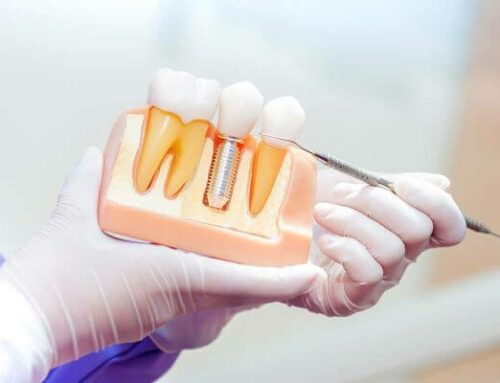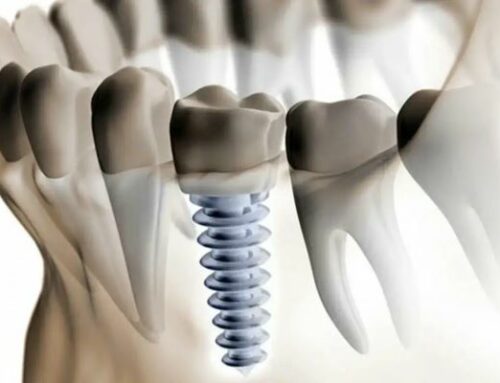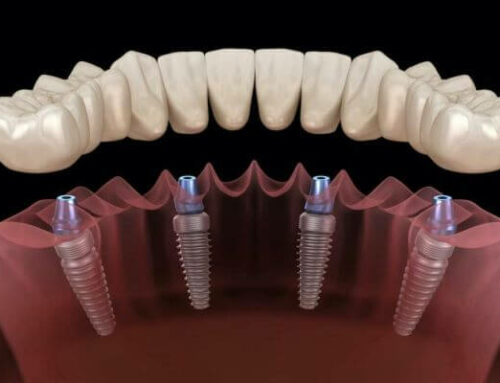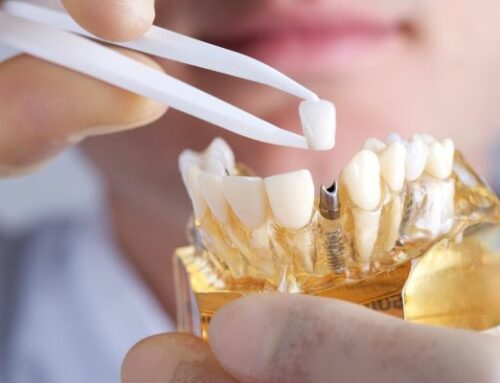Implant Complications Yes, it’s time to dive into a new chapter in the world of implantology. This chapter was created for you to focus on all implant complications. With us, you will be well taken care of. However, it is important for you to understand the possible complications of dental implants. These may not happen to you, but it is important for you to be aware of the possibilities and signs.
Dental implant complications fall into two main categories. The first is short-term complications: They usually occur immediately or within the first four to six months after surgery. They are usually related to the healing of the implant and the patient’s health habits or circumstances. The second is usually a long-term complication. From nerve and tissue damage to rejection of other things, you may even be a year after surgery.
Now, fear not, every procedure has its complications, and just because we feel it’s right to talk about it, doesn’t mean you’ll run into them. Let’s get into the details!
1. What are the complications of dental implants?
An important part of our dental implant guide cannot fail to talk about dental implant complications. This section is not meant to scare the patient, as most complications are extremely rare. We trust that informed patients make the right decisions to improve their smiles. We can try to hide possible complications, but we never will. If you know them, you know how to avoid them.
Implant complications are all the side effects and possible complications that can come with dental implants. Complications can usually be short-term or long-term. The reason for this is that some may occur during the healing phase of the bones and gums within the first few months of implantation. Some can last for six months or a year while others are long-term.
Bleeding, post-implantation infection, implant rejection, and allergic reactions are some of the side effects. Knowing these possibilities will help you choose the right doctor and follow all postoperative rules and recommendations carefully.
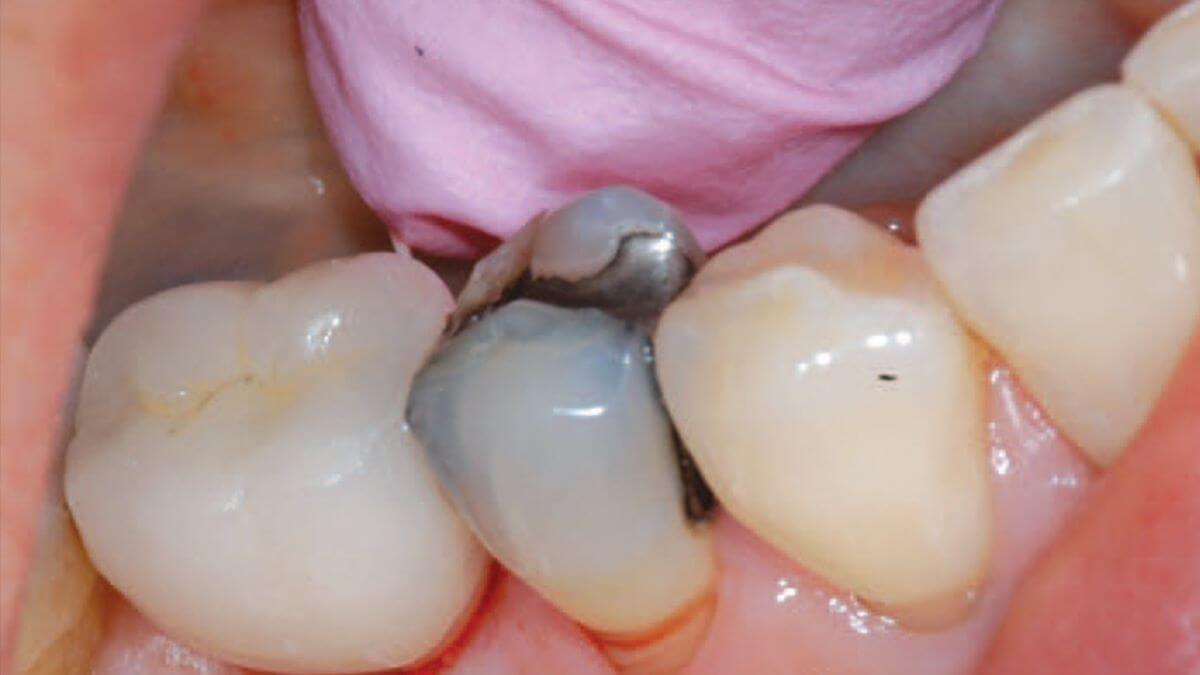
1) Short-term implant complications
Short-term complications of dental implants refer to those complications that can occur within the first four to six months following implant placement. These are often related to a lack of jaw support or a lack of post-operative implant care. For example, smoking is the enemy of the healing process after implantation. Doctor errors can also affect the final result.
The main short-term complications are:
- Chronic bleeding
- Implant infection
- Micro-movement of the implant
- Lack of bone support
- Allergic reaction
- Complications from smoking
- Complications from medical conditions
NOTE: When we say “implant application”, we are referring to the first surgery. A type of dental implant that a dentist inserts into the jawbone.
Let’s get into the details!
Chronic bleeding
One of the most recognizable side effects is chronic bleeding. In rare cases, chronic bleeding can occur after implantation and, if not stopped, can cause side effects such as stomach pain or anemia. Excessive bleeding will only cause more problems. If you notice excessive bleeding, it’s important to contact your surgeon right away for a quick fix.
If you notice chronic bleeding, do not try to stop the bleeding by touching or inserting a foreign object. Just call your dentist and follow their advice!
Implant infection
The first complication we have to talk about is infection. This can start with inflammation and progress to an infection. Sometimes you will have pain, and sometimes you will have a fever. They are easy to notice and happen often if you don’t follow every piece of advice your surgeon gives you. Infection may develop immediately after surgery and requires immediate medical attention. Contact your doctor if you experience pain and fever. These are all easy to avoid, just take your doctor’s advice seriously.
Micro-movement of the implant
What does “nudge” mean? Micromotion is the slight movement or movement of the implant. Sometimes it’s so slight, you might not even notice it. You may feel tightness, or you may see the implants moving slightly when you look in the mirror.
What to do if you see signs of fretting? Simple, call your dentist!
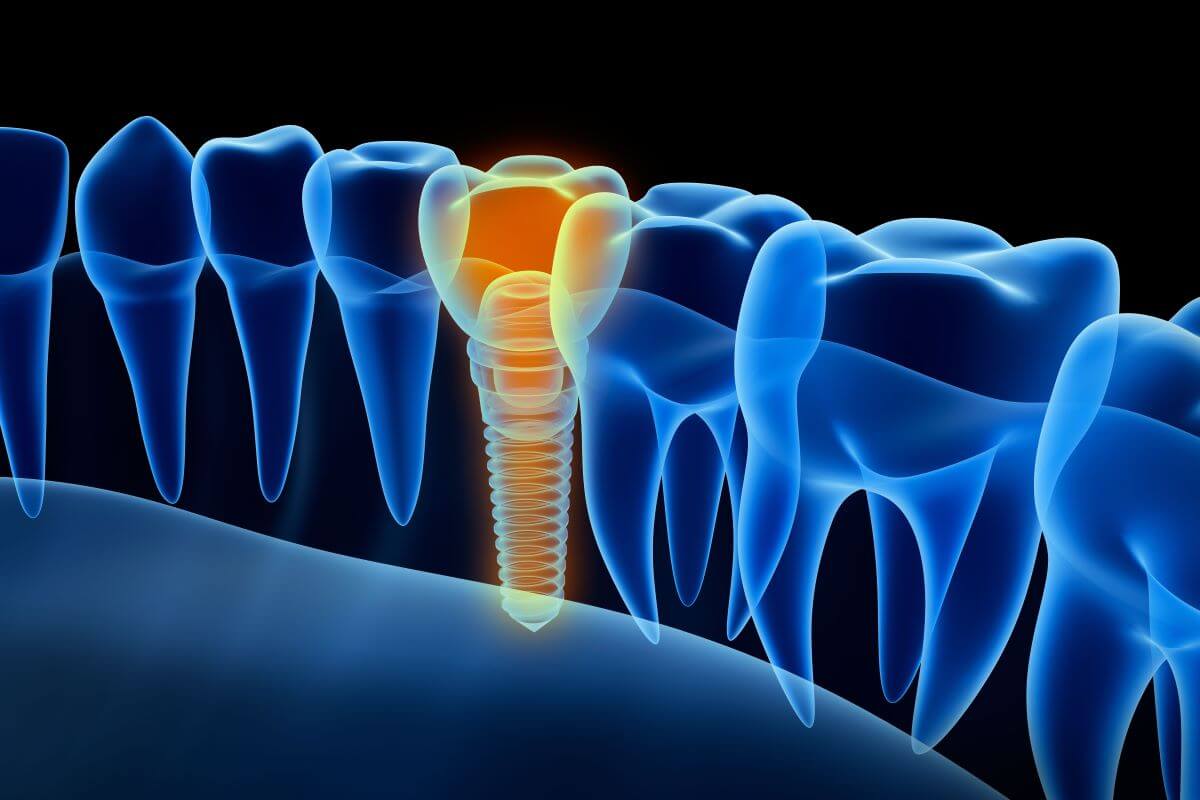
Lack of bone support
The surgeon assesses the amount of bone present in the jawbone at the time of surgery. This is because dental implants require sufficient bone mass to be properly supported. If there is sufficient support, you can proceed with implantation. A bone graft may be necessary if this is not the case.
However, there are certain conditions in which bone mass decreases rapidly, such as osteoporosis or severe gum disease. This can lead to fractures that require immediate removal of the implant. You may need bone grafts before adding another implant to your dental treatment plan.
Allergic reaction
Before you have dental implants, to avoid complications with dental implants, you need to inform your doctor of any allergies. Especially if you are allergic to titanium. If you are allergic to titanium, you will need to use a different material.
Also, if you are allergic to other metals, you will still tell your doctor about the allergy. Your dental implants may contain traces of other metals. An informed physician will know the components of the implant and will choose the one that best suits your needs.
Complications from smoking
Smoking is the worst enemy of dental implants. Smoking reduces blood flow to the gums. It causes a decrease in the body’s natural ability to heal quickly and properly. According to some studies, patients who smoke have a 20% higher rate of implant failure. We recommend that you avoid smoking for the week before surgery and for at least two months after surgery.
Complications from medical conditions
When we say you should be thorough and honest during your consultation, we mean it! There are certain conditions that can cause dental implants to fail or increase the rate of failure. You will need to disclose them when you speak with your dentist during your consultation, either online or in person. Medical conditions that increase the risk of failure include:
- Diabetes: Affects the body’s ability to heal properly and quickly. This can cause many problems during the healing phase.
- Rheumatoid Arthritis: Like diabetes, it affects the body’s ability to heal properly and quickly. It can cause many problems during the healing phase.
- Heartburn medications: These medications decrease the body’s ability to produce bone mass, prolonging the time and reducing the implant’s ability to osseointegrate.
- Alcoholism: Like diabetes and rheumatoid arthritis, it affects the body’s ability to heal properly and quickly. That’s why it can cause many problems during the healing phase.
- Cancer: Cancer subjects have a lower ability to heal and have a higher risk of infection. Often, when chemotherapy is used, the patient’s immune defenses are weakened. For this reason, cancer patients are often unable to receive dental implants.
2) Long-term implant complications
Another complication of dental implants is called long-term complications. What does long-term mean? That means it happens after a long time. These are usually complications that occur at least six months after the implant installation process. They occur after the implant has healed and calcified, sometimes even a year later.
Often they are more significant side effects in the long run, but can usually be resolved. The most common are:
- nerve and tissue damage
- Gingival recession
- sinus problems
- Foreign object rejection
- Implant loosening
- Surrounding area injured
- Damage caused by excessive force
- implant corrosion
Let’s check it out!
Nerve and tissue damage
When it comes to long-term complications of dental implants, one cannot fail to mention nerve and tissue damage. If the implant is placed too close to the nerve, damage may occur. Patients will notice tingling and numbness in the lips, face, tongue, and gums. Nerve damage can be permanent or temporary. It is important to contact your doctor right away if you think there may be nerve damage. If cured early, you may need to avoid permanent nerve damage.
Gingival recession
Another complication associated with dental implants is receding gums. what is it about This means your gums will start to fall away from your teeth or dentures. Not only will you notice your gums rising, but you’ll also notice redness, pain, and inflammation. If this happens, please contact your doctor.
Sinus problems
If dental implants are placed in areas without adequate tooth structure, the implants may migrate into the air spaces of the sinuses, causing septal infections over time. Don’t worry though, with medical care and care, this problem can be easily resolved.
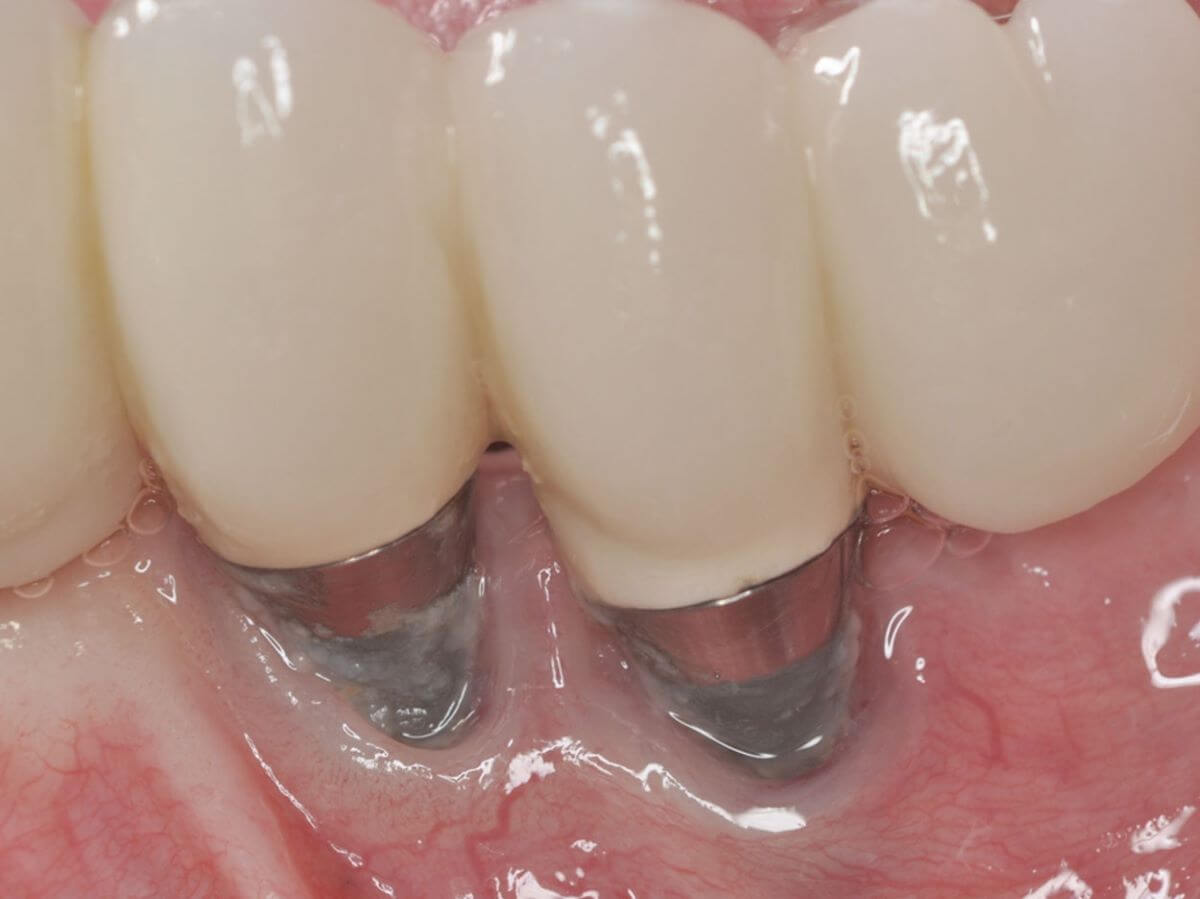
Foreign object rejection
Dental implants are made of man-made materials that are foreign to the body. That’s why your body may reject it. Most often, this is because your body is allergic to titanium or other metals used in implants. The problem is, if you’ve never had titanium or metal implants elsewhere in your body, you may not know if you’re allergic. Fortunately, this allergy is uncommon!
If it occurs within 4 months of the implant before the jaw has fully healed, it may be early implant rejection; if it occurs after the bone has fully healed, it may be late implant rejection. Usually, this happens because of poor oral hygiene, poor implant placement after surgery, or trauma.
Implant loosening
The most common complication is implant loosening. This can happen for a number of reasons. Bones that are not dense or strong enough, bone loss due to aging, gum problems, poor oral hygiene, smoking, and alcohol use. Even certain medical conditions can cause problems. A doctor should be contacted immediately in this case.
Surrounding area injured
What happens if the implant becomes loose? Well, you may injure the area around the implant. Gums or blood vessels may be damaged. If you feel that your implant may be loose, contact your dentist right away. You don’t want to wait and create some problems in the surrounding area.
Damage caused by excessive force
The exact term for this complication is overload. An overload is an abnormal stress or force that comes from a stress or force that is considered normal. This excessive pressure (often unintentional or accidental) can cause the implant to break or loosen. Usually, fractures occur in the area of dentures (crowns, bridges, or dentures). This is because implants made of titanium are the strongest part of the entire dental implant. If this excessive force occurs in the first few months after implant placement, osseointegration may be problematic.
Fortunately, this complication is very rare and is uncommon in patients with dental implants.
Implant corrosion
When we talk about it, we mean the gradual and spontaneous loss of dental implant material. This corrosion is often caused by the environment in which the implant is placed, the oral health of the patient, and the materials used to make the implant. In general, titanium is the best material to avoid corrosion.
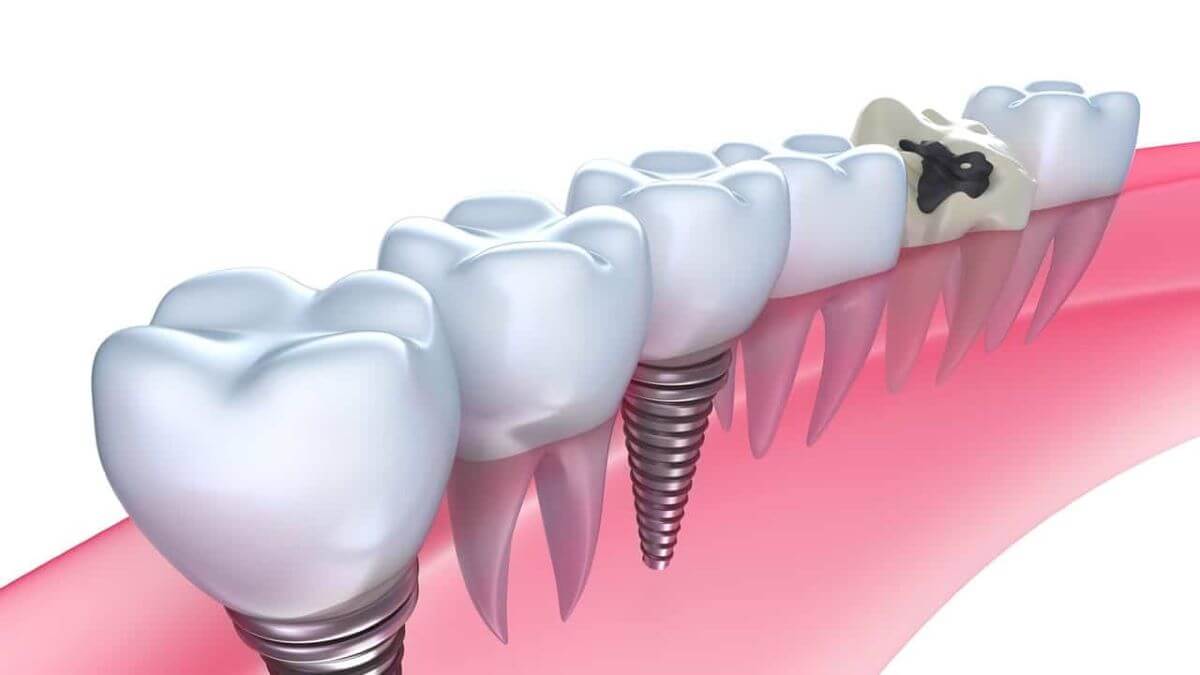
2. What are the normal side effects of dental implants?
So far we’ve discussed all the most worrisome and rare complications, but let’s talk about what’s normal after dental implant surgery.
The most common side effects of dental implants are:
- Swelling
- Bruises
- Pain or uncomfortable feeling
- Slight bleeding
The swelling usually lasts for a few days and is concentrated on one side of the implant, and can be common if it is an implant that occupies all of the gum. Ice packs may help if recommended by your doctor. The same goes for bruises on the face and gums. They pass through automatically and don’t cause problems. As for pain, these can be annoying if it lasts for a week or so, but nothing to worry about. Over-the-counter pain relievers should help manage discomfort. Light bleeding may also be noticed for the first few days. This is also normal, but if you notice bleeding that doesn’t stop, contact your doctor right away.
